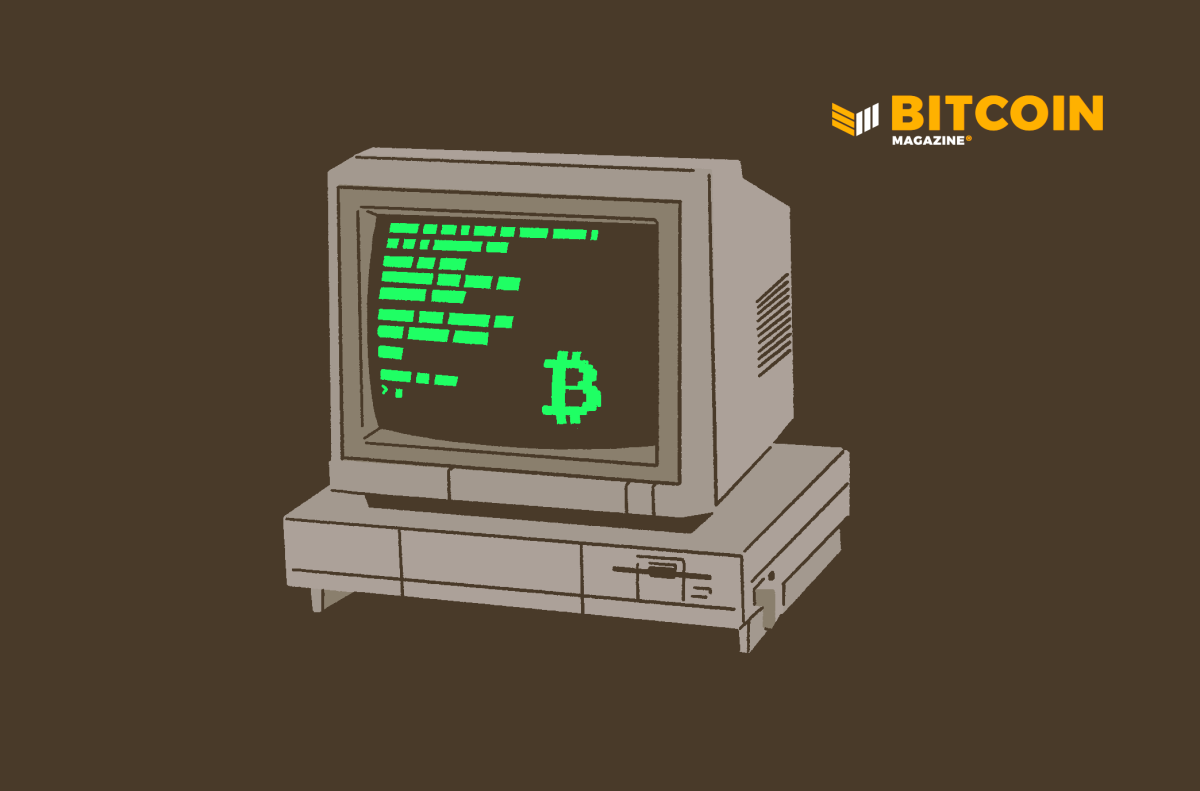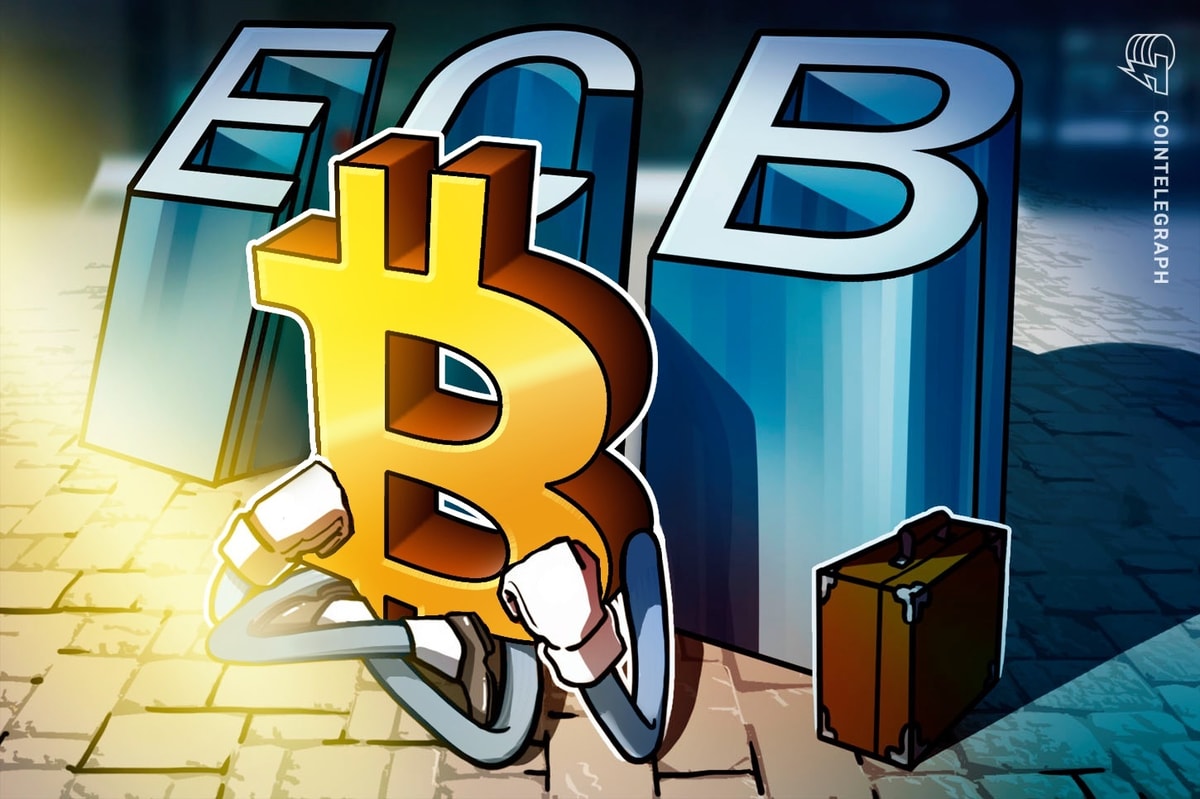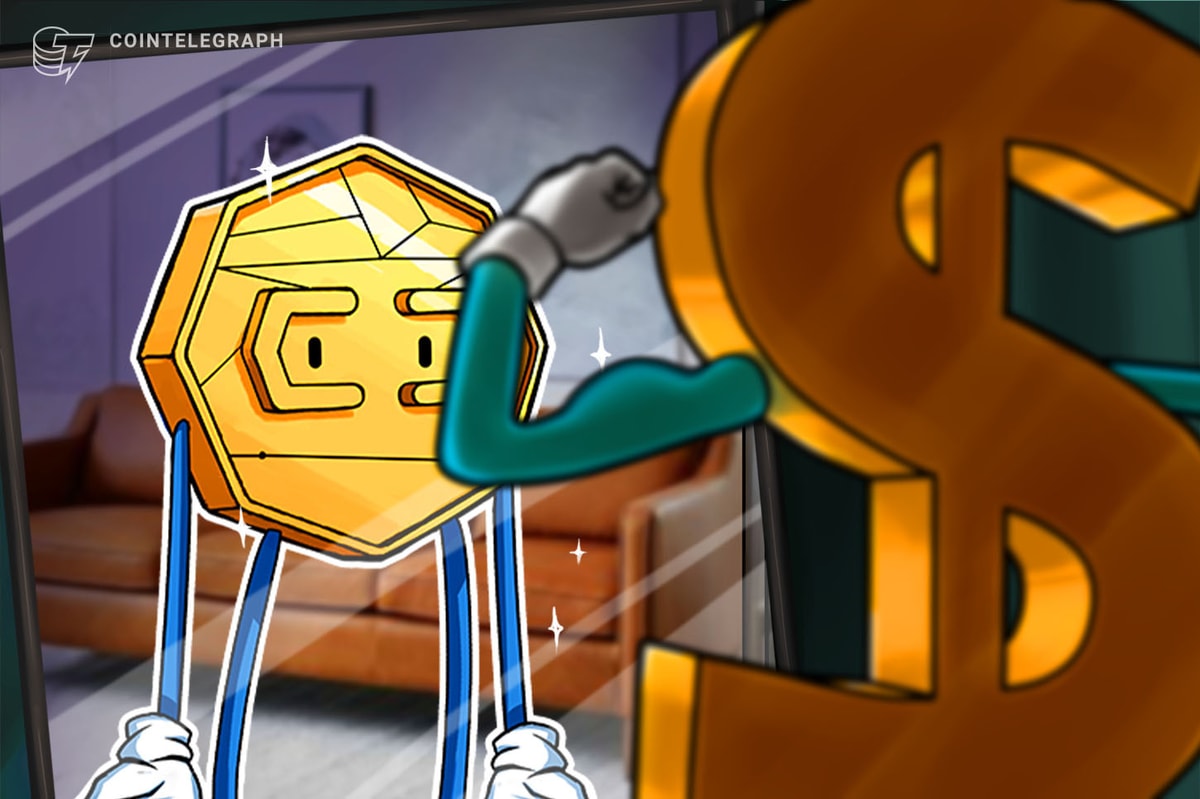This is an opinion editorial by John Vallis, host of the Bitcoin Rapid-Fire podcast, passionate bitcoin advocate and enthusiastic explorer of the profound implications it represents.
TL;DR: Stay humble, stack sats.
There’s been a lot of really ignorant takes on “bitcoin maximalism” and “purity tests” lately, and as I sit here with a fresh coconut water, blissed-out from nearly being choked unconscious this morning (a common hazard of rolling with blackbelts), a gentle wind upon my face, and the serene sounds of birds chirping … I’m struck with a question, one that puts my entire worldview in jeopardy, and which risks disrupting the peaceful Zen of an otherwise magnificent morning: Am I the baddy?
Can it be that I am a part of some toxic online cult made up of intolerant, mostly white (and, probably, very supreme) dudes who get off on browbeating into submission anyone who opposes their views on economics, politics, nutrition, relationships and much more besides?
My god, what have I become? How did I get here? And how can I rid myself of this insufferable and deplorable intolerance and get back to being … being what? Being … I guess … someone who adopts the dominant cultural worldview? Or who blindly accepts authority? Or who says nothing outside the bounds of political correctness? Or who ignores the fundamental importance of character? Or who lacks the courage and internal consistency to stand up against the status quo? Or who’d rather be more critical of a budding culture centered around certain fundamental principles and values, than the one run by criminals and incompetents which makes egregious violations of rights, decency and property a matter of course, and who fails to realize that bitcoin is likely the only thing that has a shot at fixing that? Or who wants to stay within a nice, familiar, comfortable conception of themselves and just ignore the individual changes that may be required to tilt things toward a more beneficial future for all?
Yes, yes, for the love of God get me back to that immediately before I’m forced to attend one more tedious steak dinner!
Ok, it seems I’m off to a bit of a sloppy start here.
Reign it in, John. Take your time, be thoughtful and clear with your language. Nobody likes messy writing.
Well, that may be true, but the last time I tried to write something “proper” about the whole “maximalist toxicity/culture” thing, was January 2021, and a year later it somehow resulted in a 40,000-word treatise on how bitcoin may very well represent the notion of “the second coming of Christ,” — and I’d prefer to avoid such a detour this time, if possible.
Ah fuck. I just lost like 95% of you with that whole Jesus bit didn’t I? Well, there’s no turning back now. I made sure to have a pee before starting this, and the stream of consciousness train has left the station baby! (I hope you heard that in a George Costanza voice, because that’s how it played in my head.) So we’re just going to have to work with what we’ve got. Prepare for your grammatical sensibilities to be violated.
On the upside, this foible has probably transported me back into the warm, fuzzy and intoxicating confines of the bitcoin maxi echo chamber. Ahhhh, permit me a moment to bask in its glory and breathe a sigh of relief.
Now that we’ve filtered out the non-believers, non-playing characters, professional offense-takers, Cartesians … no wait, that’s taken … Cartonians … nope, fuck, how is that taken?!

“Cartonians are large, sapient, four-footed butterflies from the planet Lepidoptrix” (first result on Google).
Hmmm, Carterians [Kar-tare-ee-en]? Yes, Carterians, I like that. It’s there on the internet already, some jazz song, but that’s not sufficient to deter me from a better use of it here. And finally, people who find themselves working at the Bitcoin Policy Institute (I kid, I kid, there’s some good people there) we can get down to brass tacks, which makes me think of brass balls, which makes me think of the lack of balls on the robot bull at the Bitcoin Conference this year, and how dumb that was. Male bulls fuck stuff. We’re trying to fuck the fiat system here. Get over it. (Plus, how is that bull supposed to sun his balls if he doesn’t even have any? Ever think of that BRAINIACS?!)
Anyhoo, where was I?
I suppose my motivation for tackling this issue, aside from a perhaps self-serving desire to depart, briefly, from the (actually) tedious, and presumably far less “violent” task of writing a book about value, is the absolutely confounding contrast between what I hear about this (insert pejorative-laden characterization of bitcoin maximalists), and my own experience of “them.”
Case in point, this past April, I brought my father to the famed, or infamous (depending on your perspective), beefsteak in Miami.
Naturally, before entering, I warned him what words to use and not use, never to turn down an offer of beef (even if full to the point of vomiting), to make sure he isn’t seen eating anything that might generate suspicion of containing either sugar or seed oils (Fuck you, Mandrik!), and for the love of God do not, under any circumstances, mention that, on occasion, you give mom a foot rub (Sometimes I can’t even believe you were able to get mom pregnant with that much estrogen pumping through your veins. No frame!).
Of course, I’m joking — or at least trying to.
What I actually told him was; “Be yourself, that’s all you need to know.”
And that, if you weren’t already aware, is the point of all of this — freedom.
What followed was an experience that will forever be one of the most cherished of my life.
For about the first two hours, we didn't go further than 10 meters from the front door, not even into the main area of the venue.
Anyone who’s attended a beefsteak knows why.
You see someone you know, or someone comes up to you and says “Hey, it’s me, @btcforevercryharder on Twitter” (not an actual handle, at least not at time of writing); what follows is a look of jubilant surprise, a “holy” followed by either “fuck,” “shit,” “balls,” or some other term denoting extreme happiness, a long, slow and tight bringing together of the hearts and dicks (also known as a hug), and then, for several unbroken hours, what can only be characterized as sheer enjoyment of one another’s company, quite often centered around radical authenticity, and discussions on such offensive topics as:
- “How has bitcoin caused you to take more responsibility in your life?”
- “What are the implications of such an absolute and verifiable form of truth emerging in the world?”
- “How did you get your permaculture ranch started?”
- “What are some of the most interesting books you’ve read lately?”
- “What advice do you have for raising strong, competent, independent, understanding children?”
- “I’m trying to write, contribute, build a product/service/business, do you have any advice?”
Followed by “Eric Cason is scaring me, am I destined for this fate if I continue down the rabbit hole?” And perhaps more concerning than all of these, several extremely sincere expressions of gratitude/praise/respect, followed by the sharing of quite intimate (and often challenging) life events, who’s resolution was precipitated, or at least greatly aided, by not only pursuing an understanding of bitcoin, and learning how it might best resolve some of the worlds biggest problems, but also, and often more powerfully, finding a group of people, dare I say, a distributed emerging culture, who share that perspective, and who are likewise being beneficially transformed in the process of pursuing a similar goal, and with whom some of the most genuine and positive relationships of their life have quickly been established.
To put more meat on this bone for you, the latter encounters often go something like this:
“Before bitcoin I was depressed, despondent, nihilistic, had very little meaning in my life and that led to treating myself and others poorly, holding myself to a very low standard, and basically just drifting through life. I couldn’t see how the many giant problems of the world could be resolved, and felt things were fucked up beyond repair, so I guess I just let myself off the hook for whatever responsibility I hold for trying to fix it, or myself. It was a dark and isolating feeling, which I compensated for in several “destructive” or unhealthy ways. I even considered killing myself (this one was not as common, but not uncommon either). But since I started learning about bitcoin, everything has begun to change. I now see light at the end of the tunnel. I now have HOPE! And this has awakened in me a renewed, even unprecedented sense of enthusiasm and energy, and a recognition of, and responsibility for, the central role that my own development, my own actions, my own character, play in turning this thing around. I see bitcoin as a tool for aiding me in that endeavor, and fixing, at a fundamental level, the system that generates so many of the problems that I was lamenting, or subconsciously being affected by (and likely contributing to). You, along with many others here, have helped me to see and appreciate that, and instilled in me the knowledge/wisdom/courage/optimism required to turn myself into someone that can be part of the solution, and I just wanted to come, shake your hand, and say thank you.”
Oh the horror!! The unmitigated toxicity!! Get me out of here!!
There are those who might say, “But, what if a topic comes up that I actually seem to have pretty divergent views on from the “orthodoxy?” The pressure to conform is crushing! Where is the safe space in this godforsaken den of vipers!?”
Well, firstly, such a thing, the “orthodoxy,” doesn’t exist, at least nowhere other than your own mind. You made it up. Full stop.
“Why did I do that!?” you might ask.
Well, I’m no Sigmund Freud here, but it may be the case that you’ve invented a boogeyman to serve as a convenient scapegoat to avoid confronting something within yourself. Perhaps you’re doing this in order to ignore or diminish a perspective that challenges one you currently hold, which helps to alleviate any internal tension or discomfort it may be causing, and might even justify some criticism that you may, as a result of that tension, feel compelled to levy.
Your interpretation (read: projection) of “bitcoin culture” is about YOU. That is to say, it’s subjective. And this is the case for all of us.
Now, that’s not to say that many people don’t perceive it in a very similar way, as it seems apparent that they do.
But there is no checklist, no secret handshake (or is there?), and no test to take. Rather, there’s a (mostly unspoken) recognition among one another of a similar set of values — a similarly structured internal value hierarchy, if you will — and a mutual interest among one another about how each person is acting them out.
This is not terribly unique. As humans, generally speaking, we are constantly sizing each other up and asking, “What are they pursuing?” or perhaps, “What is their highest pursuit?” followed by “Why is it that?” and, “How are they going about it?” This helps us determine how we’d like to interact with others, and how we might alter our own actions, according to how their example aids us in answering those questions in relation to ourselves.
In this way, we’re all always judging and being judged. This isn’t a bad thing — in fact it’s an unavoidable part of perception, as we seek to move most efficiently toward the things, outcomes and people which we deem to be most valuable or worthwhile.
Some choose to make their discernments explicit, others don’t (the category I most often fall into).
As a result, if you're truly trying to identify the source of your discomfort with “these people,” and resolve it, then the more pertinent question arises — one regarding your own orientation, precisely why it is “divergent,” and whether or not it's “justifiably” so.
This attempt to determine proper or optimal orientation, incidentally, is the reason for the vigorous debate that often takes place, and something any real “truth-seeker” would be grateful for.
Should you not want your ideas put to the test? Even more importantly, but more uncomfortably, should you not desire to have your most fundamental beliefs, axioms or principles, the primary determinants of your character, who you are, perpetually scrutinized, by you or others, in order to ensure that they continue to be the most beneficial ones you’re capable of conceiving and adopting? If you’re constantly trying to improve yourself, should you not be grateful for such scrutiny, despite the discomfort it may cause?
Of course, this doesn’t mean the source of this judgment is right, or that you should automatically alter your behavior to conform to it. It might actually be total garbage. But how will you know if you don’t take an honest look at it?
If one's primary goal is moral refinement (and I increasingly struggle to come up with an argument for anything being more important or worthwhile than that) should we not always remain open to things that might foster it? Furthermore, should we not expect that, in order for us to see something that we had been missing before, we may have to be jarred out of our current narrow perspective, in order to be made aware of it? And that this may mean it comes in a form that is, at first, off-putting to us?
That is all to say, should we not remain humble in our striving toward the ideal?
To paraphrase what Jordan Peterson often says, “The treasure you seek is often where you least want to look.”
Whether you agree with the above or not, and at the risk of being overly presumptuous, I’m going to offer some advice:
Don’t get offended. Just don’t. There is no valid reason for it. They are just words, either irrelevant or useful, and it’s totally your prerogative to decide which.
It appears to me that such an attitude is shared quite broadly among the “mean maximalists,” and it seems to foster incredibly strong, genuine, accountable, and yes, hilarious friendships with one another.
If, alternatively to such an approach, it appears as though someone is operating with a different attitude, and is engaging with an ulterior (or superior, in the hierarchical sense) set of values, principles or motives, such as the preservation of their vaunted status, intellect, identity, financial interests or otherwise, then they may, at least in the context of Bitcoin Twitter, be subject to the prodding and poking of the much-maligned bitcoin “cyber hornets.”
Run for your life!!
I always chuckle when I hear the screeches of the latest “Oh my god they’re so horrible,” as I look at the avatars involved, and realize that I know many of them personally, and that they are, in fact, some of the most high-integrity, upstanding human beings I know, basically just all in on the same cosmic joke.
If you remove all the noise, what’s really happening here is the revealing of character. An aversion to that, or at least an emotionally-charged response, is most likely proof that the judgment accrued was, at least in some sense, valid.
Sure, nobody has the “right” to judge you, as all of us are imperfect. But, in my experience, I have found that to be a suboptimal perspective to take on what could otherwise be helpful data in furthering the enterprise of your own self-understanding and development. Put another way, it seems to me that a more useful approach, if we wish to learn as much as possible, is to seek to tease the good out of the bad, not the other way around.
It may be wise to remember, at least in this regard, that “ego is the enemy.”
So, if you find yourself frequently getting sand in your trousers, perhaps its worth considering that less ego will likely not only reduce the propensity for cyber swarms to “sting” you, and not only lead to greater access to truth (generally speaking), but will probably just make all of this a lot more fun.
Nobody is actually angry here (unless you are). It’s all just a game, ultimately for your own benefit.
Now, on monetary maximalism.
I’m not even going to explain this one here. There are lots of great resources out there which make the case for why bitcoin will emerge as the winner in the global competition for money, and why that would be a very good thing to have happen (to say the least!).
That said, bitcoin becoming the next dominant global money is but one aspect of this “cultural phenomenon.” The qualities or principles which seem to be represented in bitcoin, the circumstances of the environment in which it's emerging and the manner in which it seems to be beneficially altering perception, is having a number of fascinating and, as far as I can tell, extremely positive effects on those who “see it,” which extend into areas far beyond just money and economics.
So, might Bitcoiners (yes, I’m projecting here) be wrong on some of the things they currently discuss, espouse or represent?
Of course.
Nobody knows what Bitcoin really is yet, and certainly not all its implications, nor why it’s having the effect on people which it is, nor how that effect may change in the future. Which is all to say, this enterprise, and each one of us engaged in it, is/are a work in progress.
Is it so bad that a growing group of people refuse to outsource their determination of truth to some (likely corrupt and/or incompetent) institutions which are far removed from the reality of their own life? That they learn and experiment for themselves? That they wish to rely on themselves or each other rather than the state?
Maybe they aren’t waiting for some douche hole in a lab coat (looking at you Ancel Keys) to tell them what is best for them, or what is right or wrong. They are more than willing and capable to engage in the process of figuring such things out for themselves, or at least trying that option first. They haven’t jacked themselves into the big government/business/media matrix for the manufacture of their worldview, in fact they’ve unplugged themselves from it, and are actively engaged in the process of determining what life looks like, and what it could look like, outside of it.
Yes, this means more work may be required to figure things out (culture promulgates for good reason), and this will involve lots of vigorous debate, and error. They obviously think that’s a fair trade, and I for one think it’s fucking incredible that they’ve — we’ve — now got something in bitcoin with which to better stand up to the Frankenstein of an increasingly tyrannical statist/fiat monoculture that dominates the world today. The process of doing so, it would seem, is turning them into a better, more courageous, more capable, more admirable version of themselves, exceeding what many had even thought possible.
The recognition of the central importance of individual development, of character, of taking responsibility for those things that are most meaningful, like one's own physical, mental and financial sovereignty, is increasingly recognized as the only hope we have of building, one person at a time, a world that is more fair, more just, more prosperous, more peaceful, and more truthful than anything that has been experienced before.
If this is true (and I believe it largely is), is an uncompromising attitude about the tool which is facilitating much of it, not warranted?
“But can’t they just be nicer about it?”
Well, to be fair, most actually are (SHAME!).
But more importantly, do you want them to be? Really? What is it you’d prefer they not say or do? Say mean things to you? What if there is a value in those mean things? What if, despite their delivery, there is actually something there that might be useful to you? You’d rather they just keep quiet so you can stay in your familiar little bubble? Or would you rather they give you some feedback that you might be able to use? And not “Oreo cookie” feedback, but the real kind, out in the open, blunt, honest, for everyone to see? Is this not what you would want if you were truly pursuing your own development with the utmost sincerity?
Those were rhetorical questions. Your answer(s), indeed all of ours, is already evident in how we choose to engage and react to such things.
Bitcoiners (at least this one) want to be shown where they are going astray, or at least have it put to them so they can consider it, and then recalibrate themselves if they determine they should. They willingly engage in that process, and the humility, courage and levity they do it with is something to be praised, not scorned. But just to clarify, surely it's impossible to escape noticing that Bitcoiners fight amongst themselves just as much as they do with whatever person or group is currently playing their supposed victim, right?
This would appear to be the cost of having truth, rather than easy answers, as the top priority.
But while we’re here, for the sake of clarity, let's make a distinction between nice and kind. Nice, in my opinion, is some intentionally-softened language to avoid upsetting someone’s fragile sensibilities, and is most appropriately used with children and strangers. Kind, on the other hand, is speaking to someone in a manner that you believe leaves them better off, or is most truthful, or serves the highest possible outcome of your interaction, as unconventional, unfamiliar, unappreciated or triggering to the receiver of said speech such an approach may be.
This is no easy task, and it does appear to me that many who might even agree with this approach, including Bitcoiners, often fail and fall victim to their own emotions, presumptions, egos, etc. But is this still not preferable? At least it's an attempt at speaking the truth. And if it’s not even that, at least it’s someone who feels sufficiently unencumbered by the strictures of the current culturally-sanctioned language parameters to say whatever is on their mind, no matter how crazy or ugly it may sound. I’d say even that is more preferable to a false, restrained and ultimately unhelpful politeness.
… Ok, that was a longer detour than anticipated.
What was I talking about?
Oh yeah, the beefsteak. Anyways, the point of the story is that after an awesome evening, and having several Bitcoiners come up to me and say “Hey, your dad is super cool. Like, way cooler than you …” (he WAS wearing his beefsteak ball cap backwards, which, I must admit, looked très cool), my dad and I sat up for a nightcap at the place we were staying.
Him: “Man, that was so awesome. I just can’t believe how humble, polite, interesting, interested, hopeful, intelligent, genuine, motivated, principled and fun to be around everyone was. Like I didn’t encounter anyone who wasn’t like that.”
Me: “Yup. That’s Bitcoiners.”
Him: “You have to appreciate that I'm not used to experiencing such a high concentration of all those things in one place. My world is filled with complaints, victims, arrogance, and all sorts of other shit. That was so refreshing!”
Me: “Yup. It’s pretty cool, huh?”
Him: “Man, it’s amazing.”
So what is it that separates, differentiates, or otherwise causes my dad and I to have such a dramatically different experience than those who think bitcoin is being held back or otherwise deleteriously affected by the very same group of people?
Well, while most complex social phenomena have many contributory causes, it appears to me that the bulk of this one is actually fairly clear.
(Prepare for more projecting and presuming …)
It seems that more and more people are beginning to realize, or appreciate more than before, the importance and benefit of certain values, and have become engaged in the process of understanding them better and using them to orient their behavior (consciously or not).
The two most prominent among them, as far as I can tell, seem to be truth and freedom.
In bitcoin, they have found an “object” that appears to be both one of the highest-fidelity representations of these values ever implemented, as well as the literal mechanism by which more of those two things can be accessed or brought into their life. The juxtaposition of such a thing, with the broader culture of today, has created a tremendous shared enthusiasm for actualizing its perceived potential.
The striving toward something so important, meaningful and consequential, and the shared humility which it seems to instill (or select for), at least in relation to the central object of attention (bitcoin), creates fertile soil for and brings down barriers to, connecting with others doing the same.
In such an environment, and precisely opposite to the mobs of the detractors, the relatively unimportant or superficial differences between people, can actually be celebrated as points of interest, or at a minimum seen as irrelevant and ignored, rather than divisive. Real “diversity,” yay!
What brings us together, as is so often the case, is a common reverence for certain values, and a common dedication to a (highly meaningful) cause.
We are participating in what is possibly one of the most profound revolutions in human history here, which among other things, seems to have individual moral development as a prominent component. Certain values or moral principles appear to me to be “built-in” to bitcoin, and so, if true, is it any surprise that its effect on people (often) includes a strong moral dimension? Or introduces a moral imperative? Or even fosters a moral transformation?
I can appreciate how absurd this might sound, and it certainly was a surprising observation to me, but what if there's something to it? Is it not a noble thing to be striving for?
Perhaps the form this phenomenon is taking is unexpected, or is making you uncomfortable in some way, which is unfortunate, but then again, perhaps there's something of value to be learned from that response.
There's a growing group of people out there in the world who've decided that there are few things more important than leveraging the benefits of bitcoin, pursuing an understanding of it, contributing to it, and remaining open to how engaging in that process is fostering positive change in their life, and accelerating the emergence of whatever latent potential both they and it might possess.
As a part of this process, it seems to be the case that many are increasingly acting as though the content of one's character is of paramount importance — above even the content of one's Medium page.
I'm inclined to agree.
This is a guest post by John Vallis. Opinions expressed are entirely their own and do not necessarily reflect those of BTC Inc or Bitcoin Magazine.











